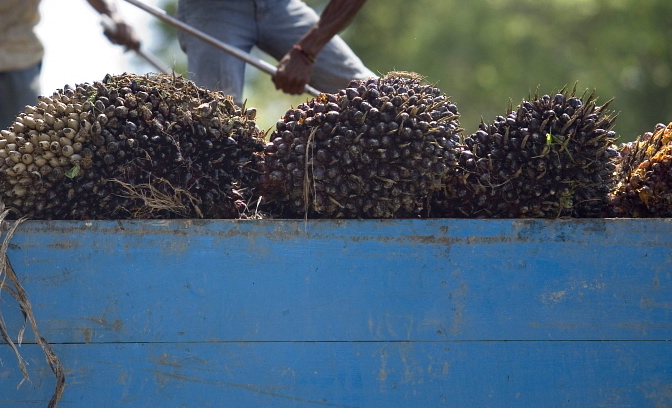By: Natalie Heng
Send to a friend
The details you provide on this page will not be used to send unsolicited email, and will not be sold to a 3rd party. See privacy policy.
After just over a decade, the sustainable palm oil agenda has made rapid progress.
The membership of the Roundtable on Sustainable Palm Oil (RSPO), a multi-sectoral group founded in 2004 to promote sustainable oil palm products, has swelled to 2,282 members in 78 countries, representing growers, processors, traders, manufacturers, retailers, banks, investors and NGOs.
The total global certified area has increased by 9 per cent over the last year, with the biggest increase in terms of percentage in Africa with 37 per cent.
There’s also been a shift in the type of sustainable palm oil that people are buying. Purchases of physical certified sustainable palm oil (CSPO) increased by 56 per cent in 2014 while sales of Green Palm certificates — which have been criticised for making it easier for companies to greenwash their products without being fully committed to supporting 100 per cent traceable palm oil — dropped 1.5 per cent.
Still, there is much to do. As Sime Darby group chief executive Mohd Bakke Salleh said at the 13th RSPO Roundtable Meeting in Kuala Lumpur (18 November), despite the amount of certified oil now standing at 20 per cent of total production, only half of that is sold at CSPO premium.
So what about the other 80 per cent of non-certified oil being produced? Getting more consumers to buy at premium prices would create the market incentive needed to get more people to see the value of joining a scheme like the RSPO.
However, even for those that are aware of palm oil, opinions tend to be polarised. Consumers in South-East Asia aren't even aware of eco-labels on sustainable products while some in Europe see the crop as something that should be boycotted.
To fix this, there needs to be more engagement with the public to explain why buying CSPO is a better move than boycotts, and how to support CSPO through the RSPO trademark. WWF Indonesia’s Market Transformation Initiative campaign #BeliYangBaik is a start.
The RSPO too plans to launch an RSPO trademark app that will allow consumers to upload product details with geotags to inform other consumers where to purchase those products.
“In the end it is about driving demand for certified sustainable palm oil,” says Bek Nielsen, RSPO co-chair. “RSPO has been lacklustre. This has to change.”
We have got this far with making sustainable palm oil part of the industry lexicon, it’s time to make it part of the public’s too.
This piece was produced by SciDev.Net’s South-East Asia & Pacific desk.














